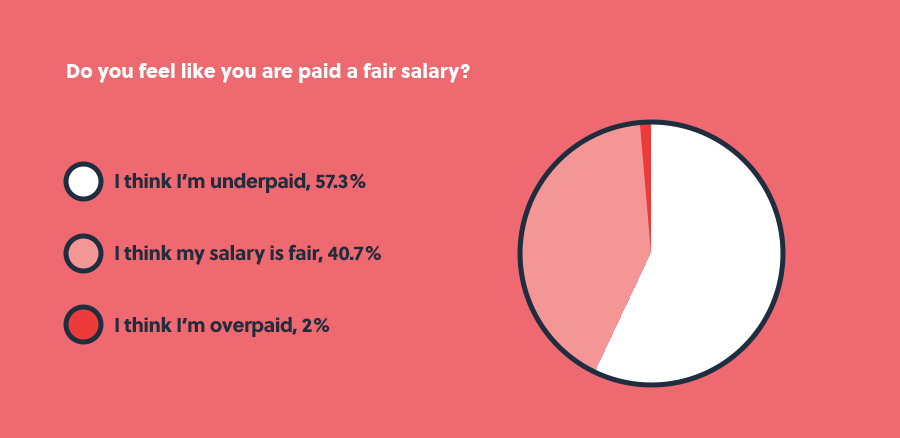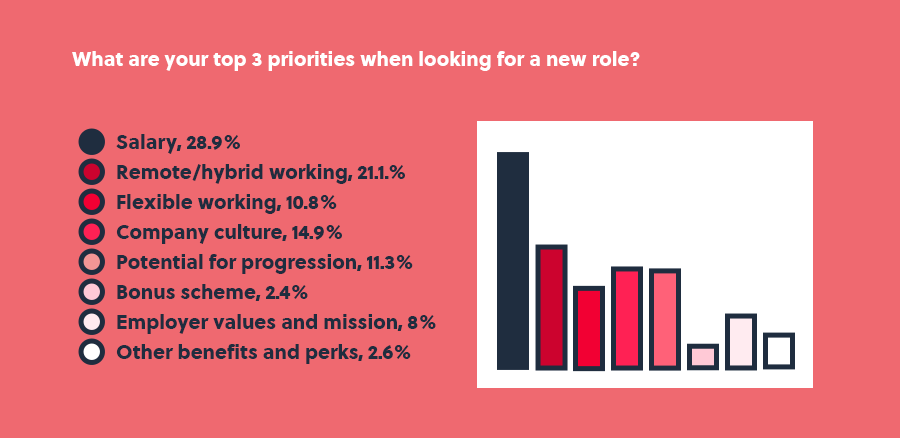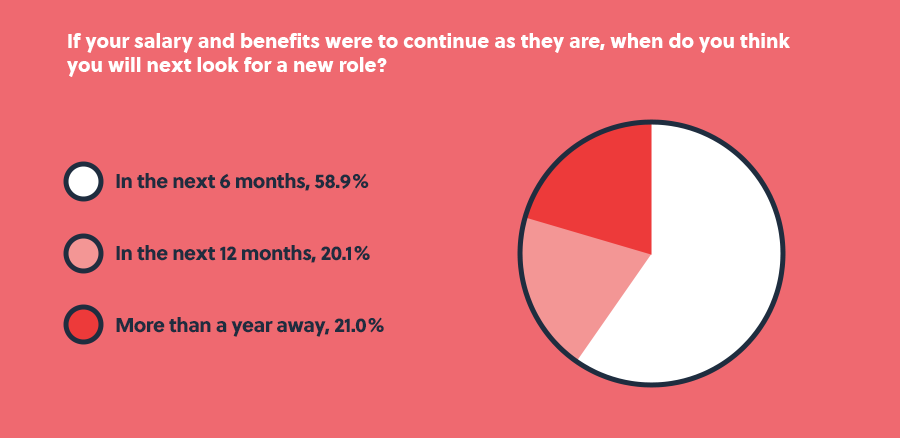To get a clearer understanding of the priorities and plans for candidates within the Digital & Tech sector going forward, we surveyed our candidate database to get a clear insight into their attitudes and aspirations…

Our candidate survey found that the majority of candidates in the Digital & Tech sector feel that they are underpaid. Given that most people’s wages don’t seem to be rising in line with the cost of living, this is not wholly surprising, but certainly something for employers in the sector to be mindful of. Salaries remain the biggest priority for candidates looking for a new role, and candidates will undoubtedly be more open to looking for a new role within the next 6 months if they feel underpaid, as opposed to if they feel they are being compensated fairly. So, if businesses want to ensure they retain their staff, it’s crucial to get salary offerings right, not just for their new starters, but for their existing staff too. We would advise businesses to ensure they are benchmarking their teams with the wider industry, and ensuring they regularly review salary bandings to ensure they are competitive.

Our research has found that the majority of professionals within the Digital & Tech industry will be looking to find a new role within the next 6 months if their current salary and benefits are to continue as they currently are. This could further support the argument for salaries needing to be regularly reviewed to ensure they are keeping up with the market; of course, it could simply be that a portion of these candidates are looking to make a change irrespective of these factors.

In terms of candidate priorities, since the widespread reduction of flexible and remote work offerings has been making headlines in recent months, it is somewhat unsurprising that ‘remote/hybrid working’ is ranked as the second highest priority for candidates outside of salary and is highly likely to be a major factor in candidates looking to secure a new role. Equally, flexible working is in third place, which further highlights this point.
In at third place is ‘company culture’; last year, before the prevalence of the cost-of-living crisis which saw salaries and stability shoot to the top of the priority list, culture was a key driver that was ranked highly by candidates. While this seems to have fallen down the list, likely due to the economic climate, cultures of trust and autonomy are still some of the most attractive drivers for candidates going forward.
Next on the priority list is ‘potential for progression’. This indicates that many candidates in the sector could be feeling stuck within their roles at present, and this could account for why so many are looking to make a move: if pay hasn’t gone up in line with the cost of living, flexibility is being reduced, and progression is stunted, those who are looking to climb the ranks and progress within their specialism will likely want to move.